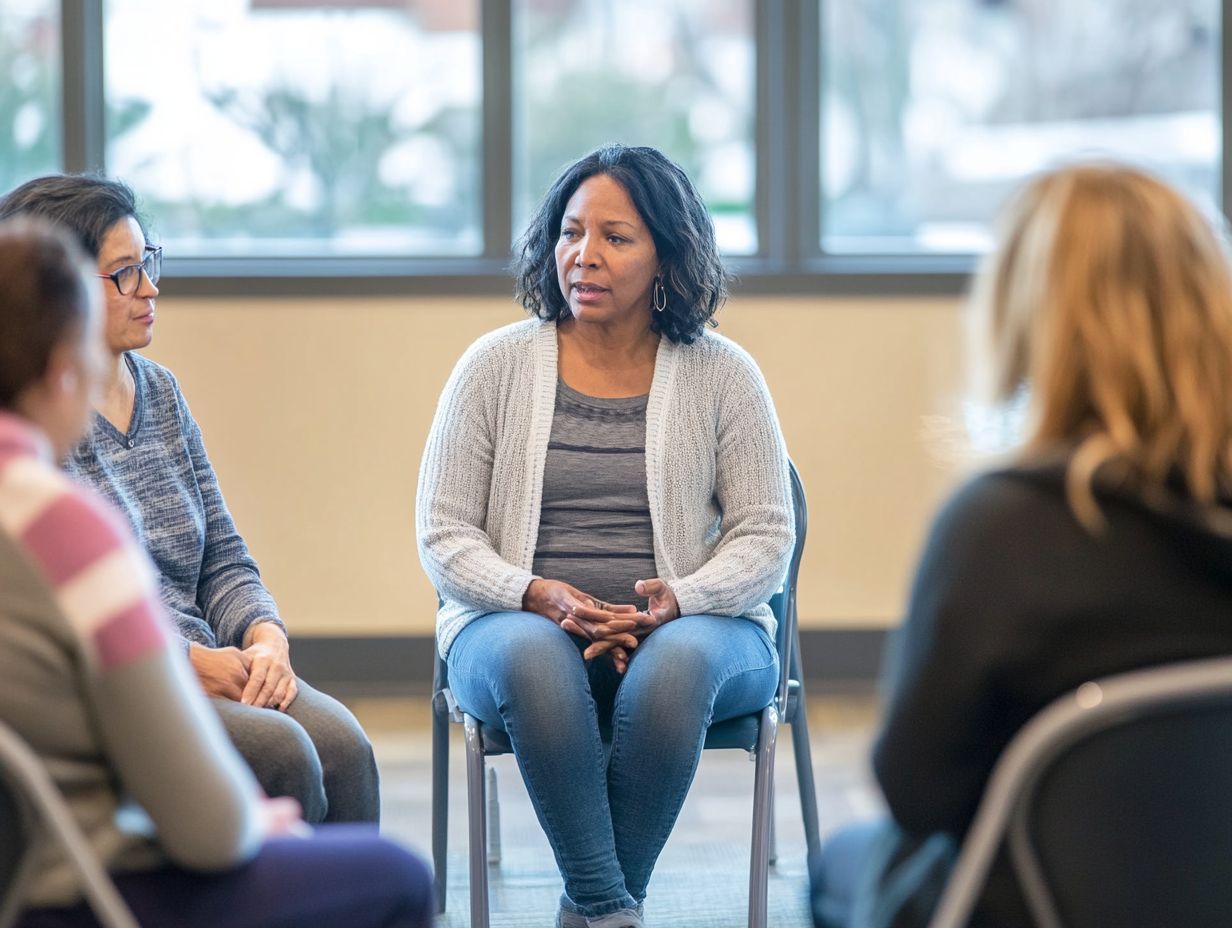Caregivers of cancer patients play a crucial role in managing healthcare coordination, providing emotional support, and assisting with daily activities. Their responsibilities can be both rewarding and challenging as they navigate doctor visits, oversee therapy adherence, and provide essential emotional care.
The demands of caregiving often result in stress, loneliness, and physical strain, impacting the caregiver’s mental and physical health. To mitigate these challenges, a range of support services are available, including:
- Support groups and counseling
- Physical therapy
- Online resources from reputable organizations like Dana-Farber Cancer Institute, National Cancer Institute, and the American Cancer Society
- Support groups
- Counseling
- Online platforms like websites and Zoom
- Support groups
- Counseling
- Online platforms
Utilizing these services can significantly enhance caregiver well-being, offering emotional relief, practical strategies, and a sense of community. By accessing a blend of local and online resources such as websites and FaceTime, caregivers can maintain a sustainable caregiving experience and foster their own health and resilience.
Key Takeaways:
Understanding Caregiving for Cancer Patients

Caregiving for cancer patients involves managing healthcare coordination, providing emotional support, and assisting with daily activities like personal care and transportation.
Caregivers ensure patient needs are met by navigating doctor visits, handling personal care, and communicating with healthcare professionals using effective communication tips.
Effective caregiving requires dedication, stress management, and strong communication skills, along with resources from support groups and online platforms.
Roles and Responsibilities of Caregivers
Caregivers for cancer patients provide emotional support, coordinate logistics, and assist with health-related tasks like medical appointments and physical therapy.
Caregivers schedule appointments, manage medical documents, and relay information between patients and healthcare providers, often using online resources and caregiver support websites.
Caregivers ensure adherence to prescribed therapies by overseeing medication schedules and providing transportation to appointments, ensuring all medical needs are met.
Support groups and training programs are available to help caregivers develop skills and emotional resilience, which are crucial for managing mental health and caregiving roles.
Challenges Faced by Caregivers
Caregivers face several challenges, including high levels of stress, feelings of loneliness, and managing anxiety and depression. They must also balance caregiving duties with personal needs and family responsibilities.
Caregivers also struggle with balancing caregiving duties with personal life, financial strain, and the physical demands of caregiving, often requiring help from others.
These challenges can significantly impact caregivers’ mental and physical health, leading to health problems if not properly managed.
Emotional and Physical Demands
The emotional and physical demands of caring for cancer patients include heightened stress from constant emotional support and physical assistance, as well as balancing their own mental health.
Emotional demands cause anxiety, depression, and feelings of isolation, which can be alleviated by counseling and support groups.
Physical demands require significant energy for daily patient care, including daily activities and therapy sessions.
Caregivers must balance their own well-being with caregiving duties, practicing self-care and seeking caregiver resources.
Support Services Available for Caregivers

Support services for caregivers include support groups, online resources, and assistance from friends and family, helping caregivers manage their caregiving roles effectively.
-
Support groups provide emotional support and practical advice from others in similar situations.
-
Online resources offer educational materials, forums, and virtual support through platforms like Zoom and FaceTime.
-
Assistance from friends and family includes respite care and help with daily tasks, providing essential support.
These services help caregivers manage stress and improve their ability to provide care, addressing both emotional and physical needs.
Types of Support Services
Types of support services for caregivers include:
- Support groups provide a space for caregivers to share experiences and coping strategies.
- Counseling offers emotional relief and personalized strategies.
- Online platforms, such as websites and apps, enable flexible communication and connection, offering valuable caregiver resources.
These services help address caregivers’ unique challenges.
Benefits of Utilizing Support Services
The benefits of utilizing support services include improved caregiver well-being, enhanced emotional support systems, better mental health outcomes, and a sustainable caregiving experience, ensuring caregivers can effectively manage their roles.
Support services provide resources, counseling, and community connections that aid in managing stress and maintaining caregiver health, addressing both mental and physical needs.
Improving Caregiver Well-being
Improving caregiver well-being involves establishing a support network of family, friends, and community resources to provide emotional encouragement and practical assistance, such as counseling and support groups.
Caregivers should communicate their needs clearly, ask for specific help, and express feelings without fear of judgment. Utilizing communication tips can help in effectively conveying their needs.
Open conversations foster understanding and reduce isolation, helping caregivers manage their stress levels.
Practitioners recommend setting aside time for self-care to maintain physical and emotional stamina, ensuring caregivers are caring for themselves too.
How to Access Support Services

To access support services for caregivers, contact local healthcare providers, explore non-profit organizations, and use online resources tailored for cancer patient caregivers. Reputable organizations like Dana-Farber Cancer Institute and the American Cancer Society provide valuable support.
Begin by reaching out to hospitals or clinics for information on local support groups. They can also recommend other caregiver resources available in your community.
Utilize online platforms like caregiver support websites and forums for additional resources. Websites from reputable organizations can offer extensive support.
Accessing support services involves combining local and online channels for comprehensive assistance. This approach ensures caregivers receive the support they need.
Finding and Utilizing Resources
Finding and utilizing resources involves identifying and accessing helpful information or materials to support specific needs, ensuring caregivers can manage their day-to-day activities efficiently.
- Use reputable websites and health organizations like the National Cancer Institute to research caregiver resources.
- Engage with support groups for community connection and advice.
- Evaluate resources for credibility through expert endorsements and user reviews.
- Reach out to organizations offering workshops and materials for practical strategies and emotional support.
Frequently Asked Questions
What support services are available for caregivers of cancer patients?
There are various support services available for caregivers of cancer patients, including support groups, counseling services, respite care, and educational resources. These services can provide emotional, physical, and educational support to help caregivers in their role.
There are various support services available for caregivers of cancer patients, including support groups, counseling services, respite care, and educational resources. These services can provide emotional, physical, and educational support to help caregivers in their role.
How can support services benefit caregivers of cancer patients?

Support services can benefit caregivers in many ways, such as providing a safe space to express their feelings, learning coping strategies, connecting with others who are going through similar experiences, and gaining knowledge about the cancer journey.
Support services can benefit caregivers in many ways, such as providing a safe space to express their feelings, learning coping strategies, connecting with others who are going through similar experiences, and gaining knowledge about the cancer journey.
Who can access support services for caregivers of cancer patients?
Support services for caregivers of cancer patients are available to anyone who is caring for a loved one with cancer, including family members, friends, and professional caregivers. These services are often free or low-cost and do not require any specific qualifications to access.
Support services for caregivers of cancer patients are available to anyone who is caring for a loved one with cancer, including family members, friends, and professional caregivers. These services are often free or low-cost and do not require any specific qualifications to access.
How can I find support services for caregivers of cancer patients?
You can find support services for caregivers of cancer patients through hospitals, cancer treatment centers, community organizations, and online resources. You can also ask your loved one’s healthcare team for recommendations or search for local support groups in your area.
You can find support services for caregivers of cancer patients through hospitals, cancer treatment centers, community organizations, and online resources. You can also ask your loved one’s healthcare team for recommendations or search for local support groups in your area.
Can caregivers of cancer patients receive financial assistance through support services?
Some support services for caregivers of cancer patients may offer financial assistance or resources to help with caregiving expenses, such as transportation costs, medication costs, or home care services. You can inquire about these options when seeking out support services.
Some support services for caregivers of cancer patients may offer financial assistance or resources to help with caregiving expenses, such as transportation costs, medication costs, or home care services. You can inquire about these options when seeking out support services.
How can I support a caregiver of a cancer patient?
If you have a friend or family member who is a caregiver of a cancer patient, you can offer your support by listening to them, helping with practical tasks, providing respite care, or simply asking how you can be of assistance. You can also suggest they seek out support services to help them in their caregiving role.
If you have a friend or family member who is a caregiver of a cancer patient, you can offer your support by listening to them, helping with practical tasks, providing respite care, or simply asking how you can be of assistance. You can also suggest they seek out support services to help them in their caregiving role.



